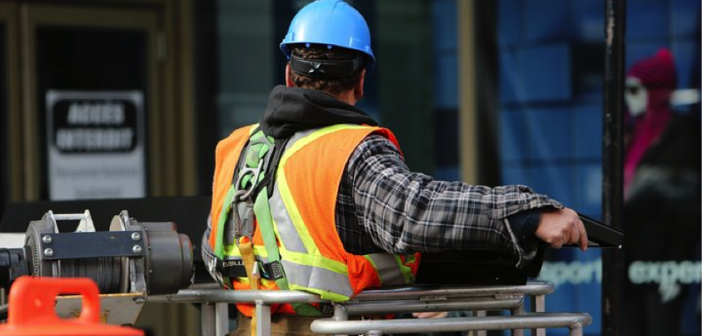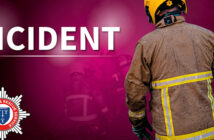Construction is one of the biggest businesses across the globe. New buildings and structures come up each day due to the ever increasing population and rapid rate of urbanization.
Construction sector employs a large number of people. Most of the employees provide manpower and they work for about 8 hours a day. The employees are involved in various activities such as lifting, carrying, moving, cutting and arranging various objects.
Construction sites have sharp objects, corrosive substances, heavy objects and various equipment. These objects put the employees at a constant threat of being hit by a falling objects, being cut by a sharp objects or machine, inhaling poisonous gases and even falling from a ladder.
Why Protective Measures should not be taken for Granted
1. Construction sites have dust particles
The amount of dust and other airborne particles is usually higher in construction sites. These materials are known to affect the respiratory system of human beings. If you inhale large quantities of these materials, you can have a running nose, nausea, and breathing problems. The situation can get worse in case you work in a construction site on a daily basis without protecting your nose. Dust particles will start to accumulate in your windpipe or lungs and cause lung diseases and other respiratory complications. It is recommended that you use nose protection gear to filter out dust particles when mixing sand, cement and gravel. Some dust particles can also get in the eyes and cause irritation and discomfort. It is wise to wear protective goggles when carrying sand using a wheelbarrow or spade.
2. Sharp objects can cut someone
Iron sheets, steel rods, power saw, and other sharp objects can cut employees. Rusted nails and other metallic objects are known to cause tetanus and the wound takes time to heal. Sharp objects can spread deadly diseases such as hepatitis and HIV if they cut several people within a short period of time. Always keep nails and sharp tools in a lockable toolbox to avoid accidents. Employees should wear gumboots, gloves and overall to reduce the chances of being cut by a sharp object.
3. Hot surfaces can burn people
Generators, drills, welding surfaces and hot tools can burn someone who doesn’t have protective gear. Employees should not touch running machinery with bare hands. Always wear gloves when using drills and other tools that generate heat.
4. Electric shock
Employees that do wiring and installation of electrical appliances are at great risk of being electrocuted. Electricians should wear special Protective gloves when handling cables. The right procedure should be taken when commissioning a new power line to prevent accidents.
5. Some people will try to reach the construction site
Construction sites will attract different types of people. Some people will try to get to the employees so that they can sell some food stuffs. Kids and some adults will also move closer to see how some construction equipment works. The only way to stop these people from getting closer is to install construction site barriers and have a guard at the entrance to stop unauthorized persons from getting in. Construction site barriers are available at chapter 8 barriers and other sites that sell high quality barriers. Barriers stop people who dislike the project and thieves from reaching the site and vandalizing equipment or taking valuable parts. A fence stops such people from getting in and out of the site within a short period of time. The fence reduces the amount of noise and dust that reaches people living in the neighborhood. It also hides the ugly construction site and activities on the site.
6.Excessive noise can cause partial deafness
Power saws, generators, drills and other machinery produce a lot of noise when running. Employees operating the equipment or those near the equipment should wear ear muffs. Ear muffs filter excess noise and reduce the chances of becoming partially deaf due to noise.
7. Tough stains can stick on the skin and clothes
Some lubricants such as oil and grease can stick on your clothes or even skin. Clothes that have oil are difficult to clean even using powerful detergents. When these substances come in contact with your skin, you feel uncomfortable and they are difficult to wash. These products can cause skin problems and some lubricants are suspected to be carcinogenic.
8. Workers might inhale poisonous gases
Generators produce carbon dioxide, carbon monoxide and traces of sulphur dioxide. Some paints have volatile substances which can be harmful to your health. These gases are poisonous and they can cause suffocation or even death. It is advisable to position a generator in an open field and the person in charge of refueling should wear a nose protection gear to filter off this gases.
9. Some workers might fall from a ladder
A ladder that is weak or poorly positioned can cause an accident. Always position your ladder at the correct angle to avoid falling while climbing. Also inspect the ladder to check if it is ok before using it.
10. Falling debris can hit someone’s head
Pieces of stones, blocks and construction tools can fall from the roof or upper floors and hit someone on the ground. The falling objects can cause serious head injuries or even instant death. All construction workers should wear helmets to protect their heads from falling objects.
11. Intensive light from welding area can cause blindness
Welding produces intensive light which can cause blindness after a prolonged exposure. You should wear protective goggles to stop the light from reaching your eyes.
Construction sites have sharp objects, falling debris and poisonous gases which can cause injuries, health complications or even death. All construction site employees should wear high quality gumboots, gloves, overall and helmet to protect various parts of their bodies. First aid kit should be readily available in a construction site to save lives. It is recommended that each worker should take an insurance cover to offset hospital bills in case an accident occurs.




